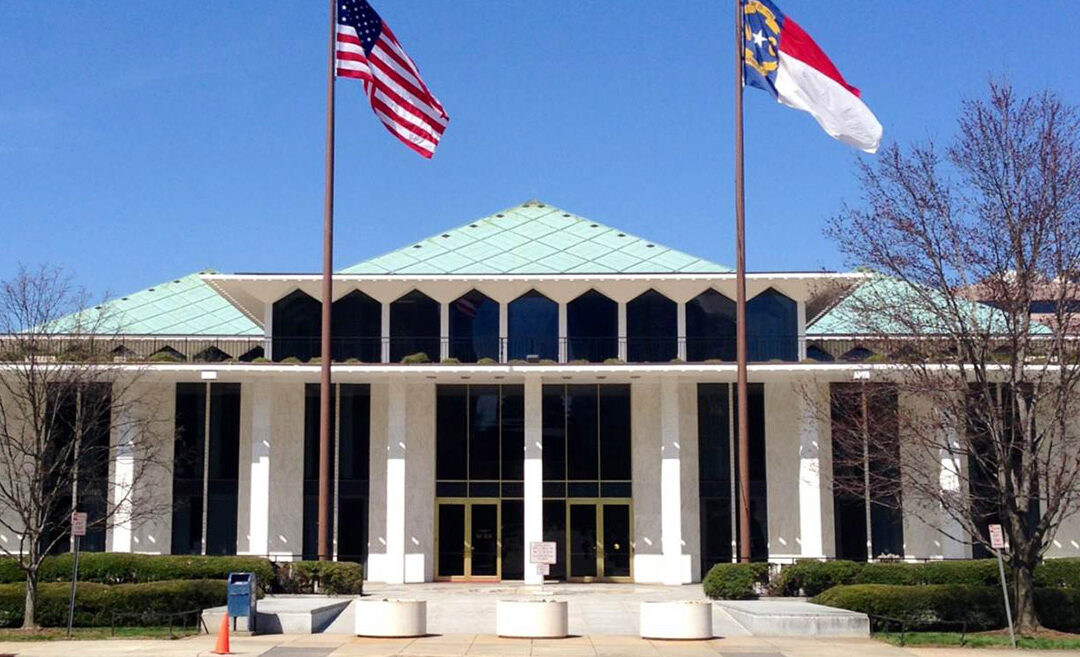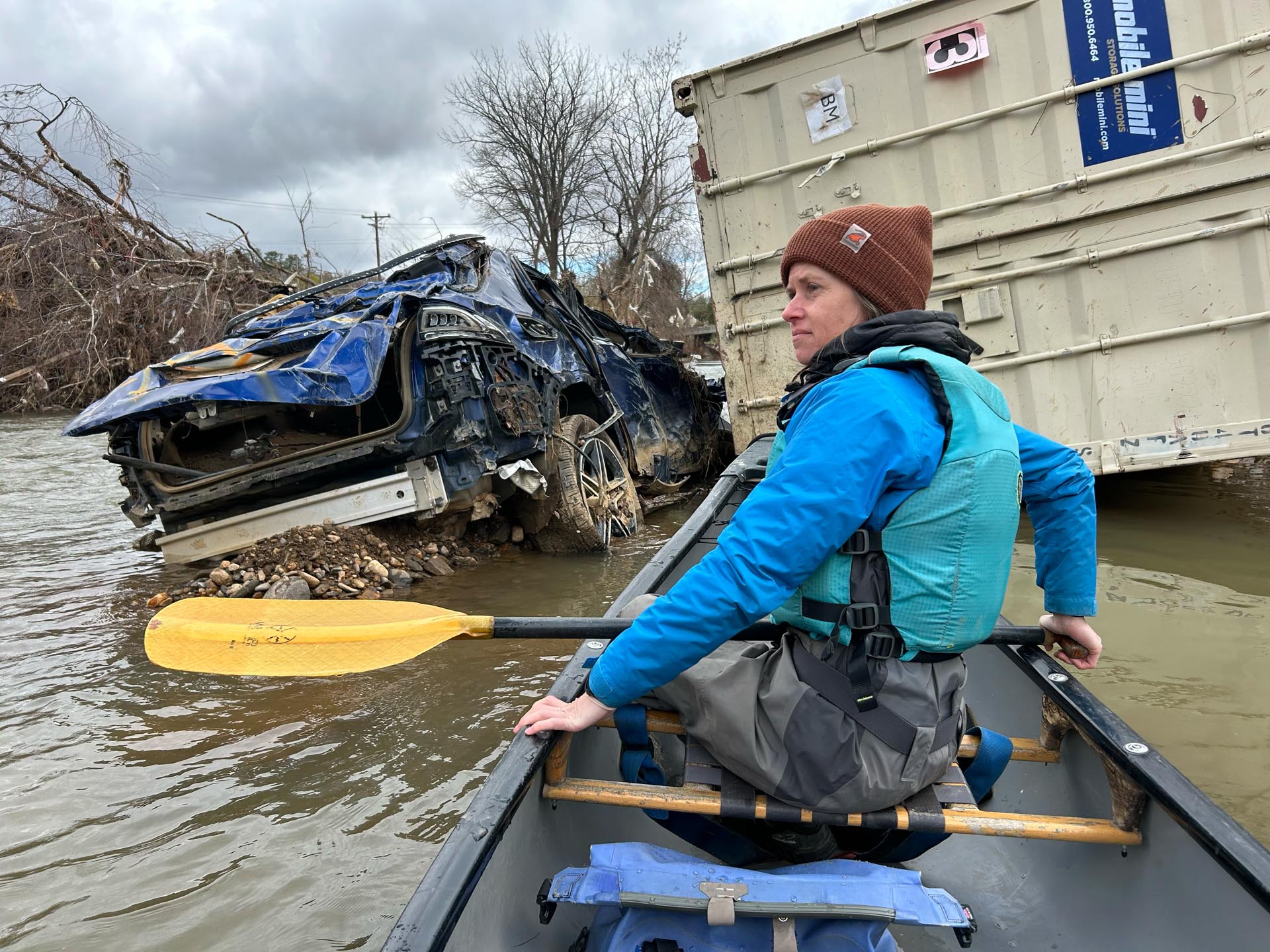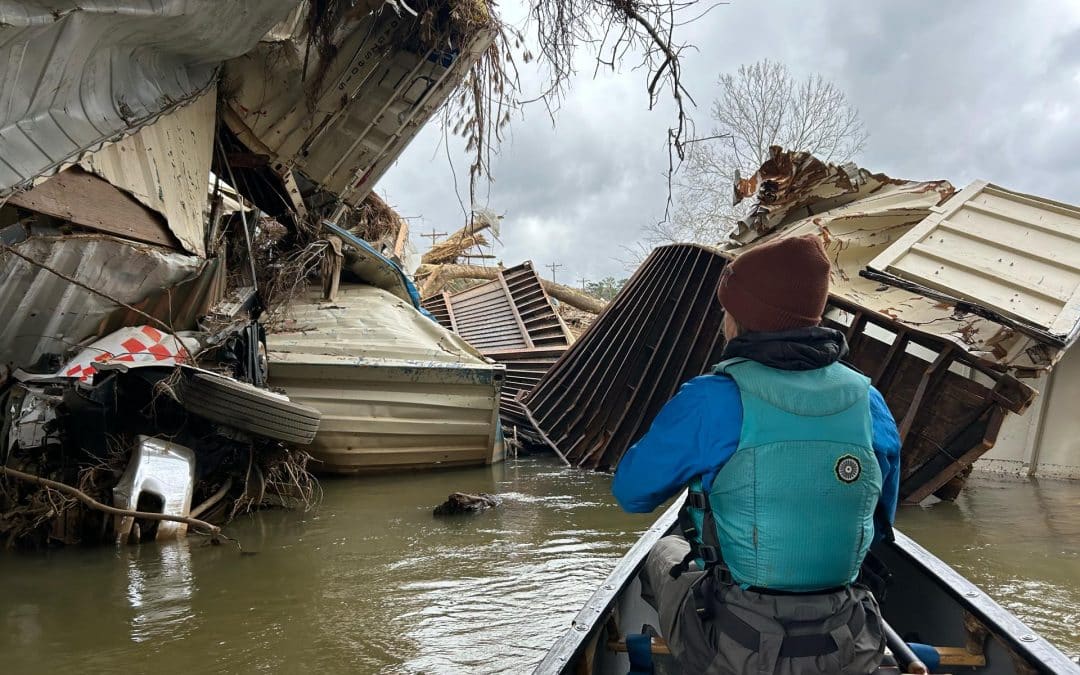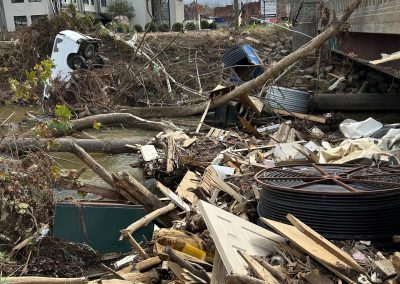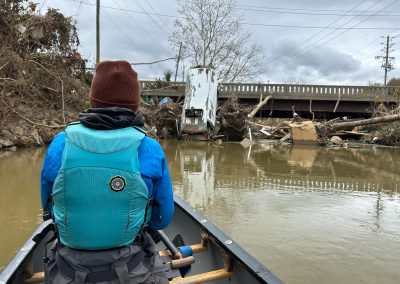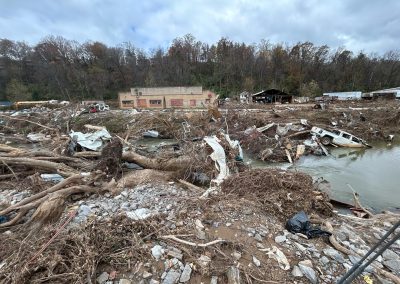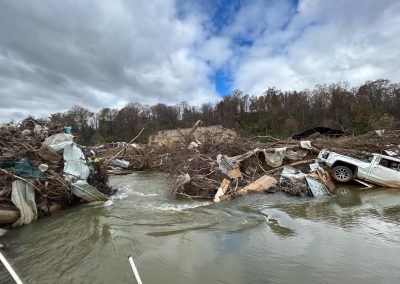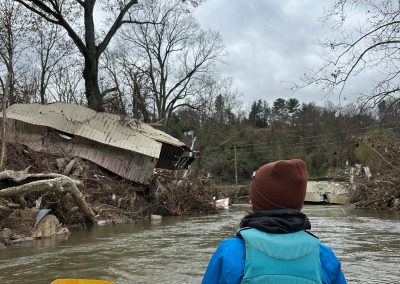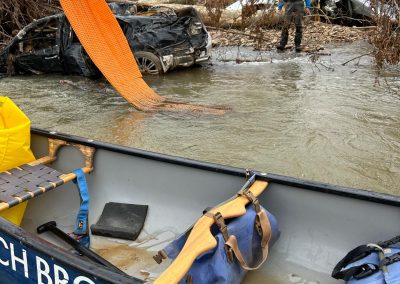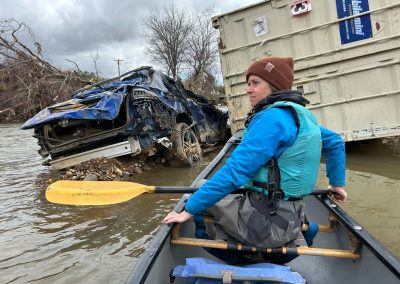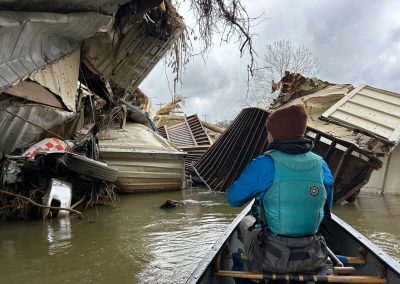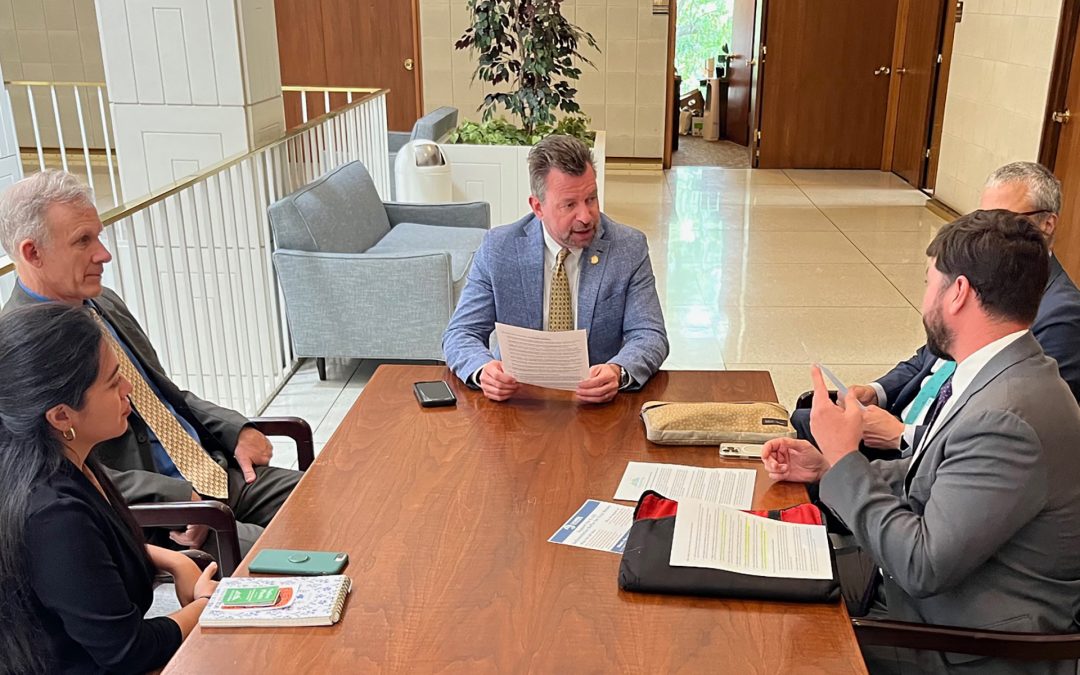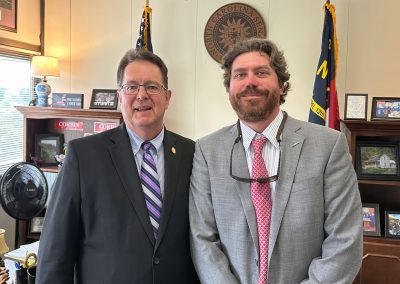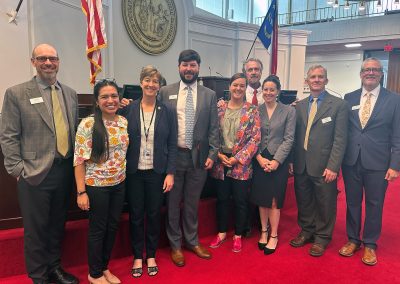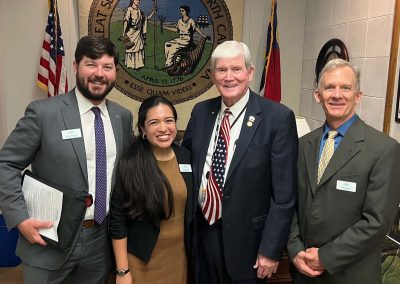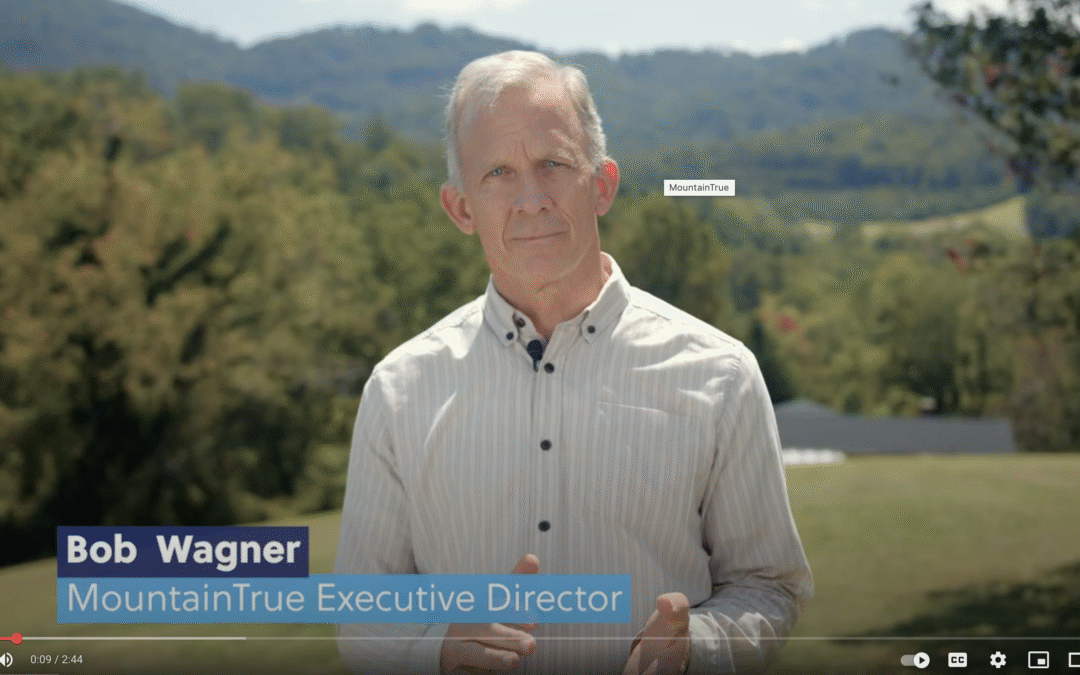
Stronger Than the Storm: Reflecting on a Year of Recovery After Hurricane Helene
Stronger Than the Storm: Reflecting on a Year of Recovery After Hurricane Helene
Dear Friends,
One year ago, Hurricane Helene changed everything.
Across Western North Carolina, more than 100 lives were lost. Homes and businesses were destroyed. Entire communities were left without power, food, and running water for weeks.
In those first hours and days, people came together. Neighbors helped neighbors. And MountainTrue joined first responders, community groups, and churches to meet urgent needs. We organized supply deliveries. Carried medicines and essentials into areas cut off by the storm. Even fired up a mobile grilling operation to serve thousands of hot meals to families in the hardest-hit communities.
As days turned into weeks, people’s needs kept changing. So we stayed flexible. We tested wells, water, and soil for contamination. Partnered with Wine to Water to distribute water filters and well-testing kits. Sent chainsaw crews to clear roads and homes. And even helped set up a mobile laundry station in the Emma community.
But recovery isn’t just about today—it’s about tomorrow.
That’s why we launched the Appalachian Design Center to help communities like Swannanoa, Hot Springs, and Marshall rebuild stronger. We partnered with American Rivers and the Pew Charitable Trusts to secure $10 million from the state to remove hazardous dams damaged by the storm.
And we piloted an ambitious debris-cleanup program that put people back to work restoring our rivers—out-of-work guides, hospitality staff, and others hit hardest by the storm. With the help of volunteers, that program removed more than 3 million pounds of trash from local waterways.
Now, with support from the State of North Carolina, we’re expanding the program to provide more jobs and mobilize even more volunteers to clean up rivers, lakes, and streamfronts across Western North Carolina and the Qualla Boundary.
As we look back on this past year, we know the work isn’t over. Recovery means building a safer, healthier, and more resilient future for all of us.
And we want to mark this moment together.
On Thursday, October 2, please join us in Asheville for Stronger Than the Storm: A MountainTrue Gathering Honoring the Challenge, the Recovery, and the People Making It Happen. This will be a time to reflect, to honor the lives and communities forever changed, and to celebrate the resilience, generosity, and determination that make Western North Carolina strong.
Thank you for being MountainTrue. Together, we will protect the places we share.
With gratitude,
Bob Wagner, Executive Director
MountainTrue
Join Us for Stronger Than the Storm
Join us on October 2 for Stronger Than the Storm: A MountainTrue Gathering. Together we’ll reflect, honor our communities, and celebrate the resilience and generosity that make WNC strong.
Help Us Rebuild Better Than Ever
Discover how communities are rebuilding stronger and smarter in the aftermath of Hurricane Helene—visit appalachiandesign.org
Help Us Clean Up Our Rivers
Want to help restore our rivers? Visit cleanupwncrivers.com to volunteer, donate, or learn more about how you can make a difference today.
Support the Work of MountainTrue
Your gift powers clean rivers, resilient forests, and healthy communities. Donate to MountainTrue today and help us build a safer, stronger, and more resilient future together.

